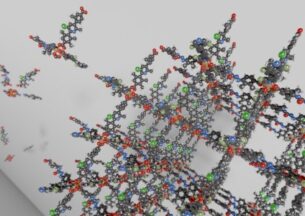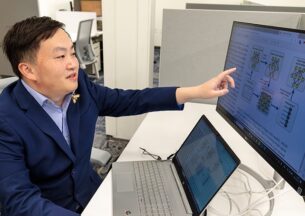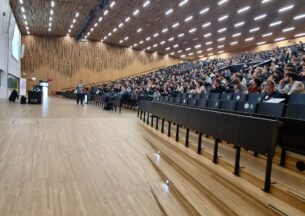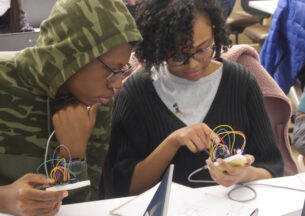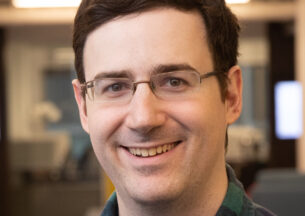Diana Franklin Testifies for Congress about Quantum Computing Education
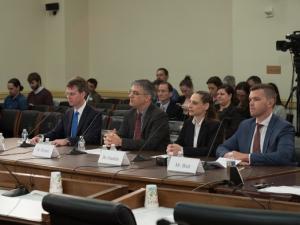
The great potential of quantum computing — and the urgent need for research investment and education in this fast-growing field — was the topic on Capitol Hill Friday morning. A panel of entrepreneurs and computer scientists, including Diana Franklin of UChicago CS, answered questions from U.S. representatives on the Energy and Commerce Committee about what actions are needed to realize this technology’s promise and preserve American leadership in the area.
Franklin, one of the principal investigators on the Enabling Practical-scale Quantum Computing (EPiQC) Expedition and Director of Computer Science Education for UChicago STEM Education, focused her testimony on the need for educating new quantum computer scientists and the important role of research universities in making this technology useful.
“Quantum computing can be a game changer in promising areas including drug design and food production,” Franklin said. “While the university has historically been on the forefront of computer science and emerging technologies, lapses in academic funding for quantum computer science have allowed global competitors to make great strides, putting the US back 10 years from where it could have been in research output and workforce development.”
Committee members including Illinois Representative Janice Schakowsky asked the panel about what educational efforts are needed at both the university and K-12 levels. Franklin cited EPIQC work such as quantum computing tutorials for faculty and graduate students, a partnership with the UChicago Institute for Molecular Engineering to create a quantum track for their degree program, and the creation of early education STEM curricula that introduces young students to concepts in quantum physics and CS.
Franklin also highlighted the important areas that need attention to more quickly transform the hype around quantum computing into practical value.
“One gap is in software development — there is a difference between a quantum algorithm and software that can solve a particular problem,” Franklin said. “If this were furniture construction, what we have now is piles of wood, screws, and nails. An expert needs to figure out how to use those to create useful furniture. Instead, what we want in the future is for non-experts to be able to go to quantum IKEA, get a pre-fabbed kit, and easily modify it for their application.”
While some committee members expressed skepticism about whether quantum computing will realize its potential, the panel was optimistic about its future if American investment keeps pace with other countries.
“There are so many advantages, if it can be realized, that we don’t want to be the ones who fall behind early and then are wrong,” Franklin said. “With a significant investment in hardware, software, and workforce development, I am confident that the United States can maintain its dominance in computing.”
You can read Franklin’s full submitted testimony and watch archive footage of the hearing at the Energy & Commerce Committee website.




